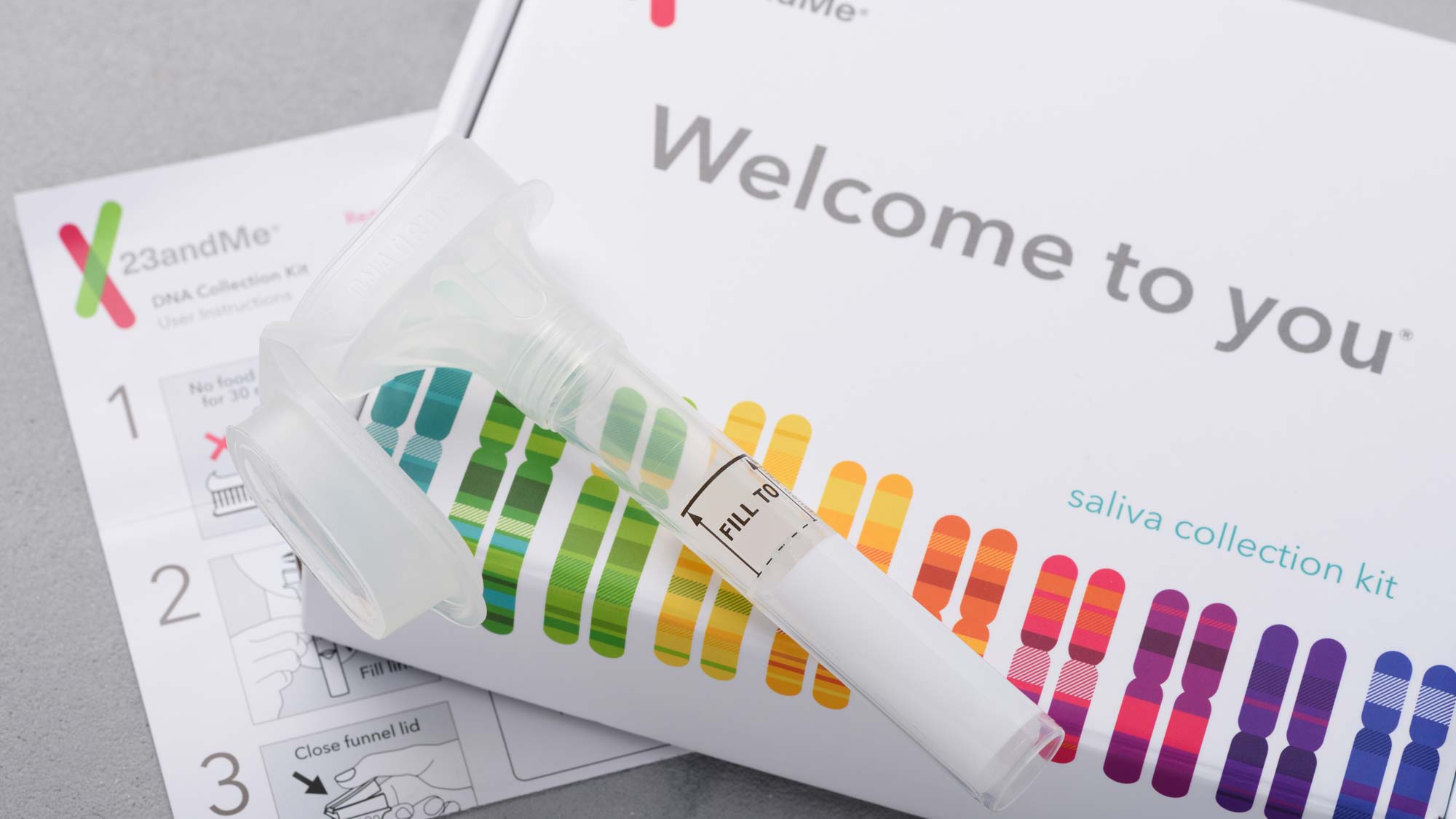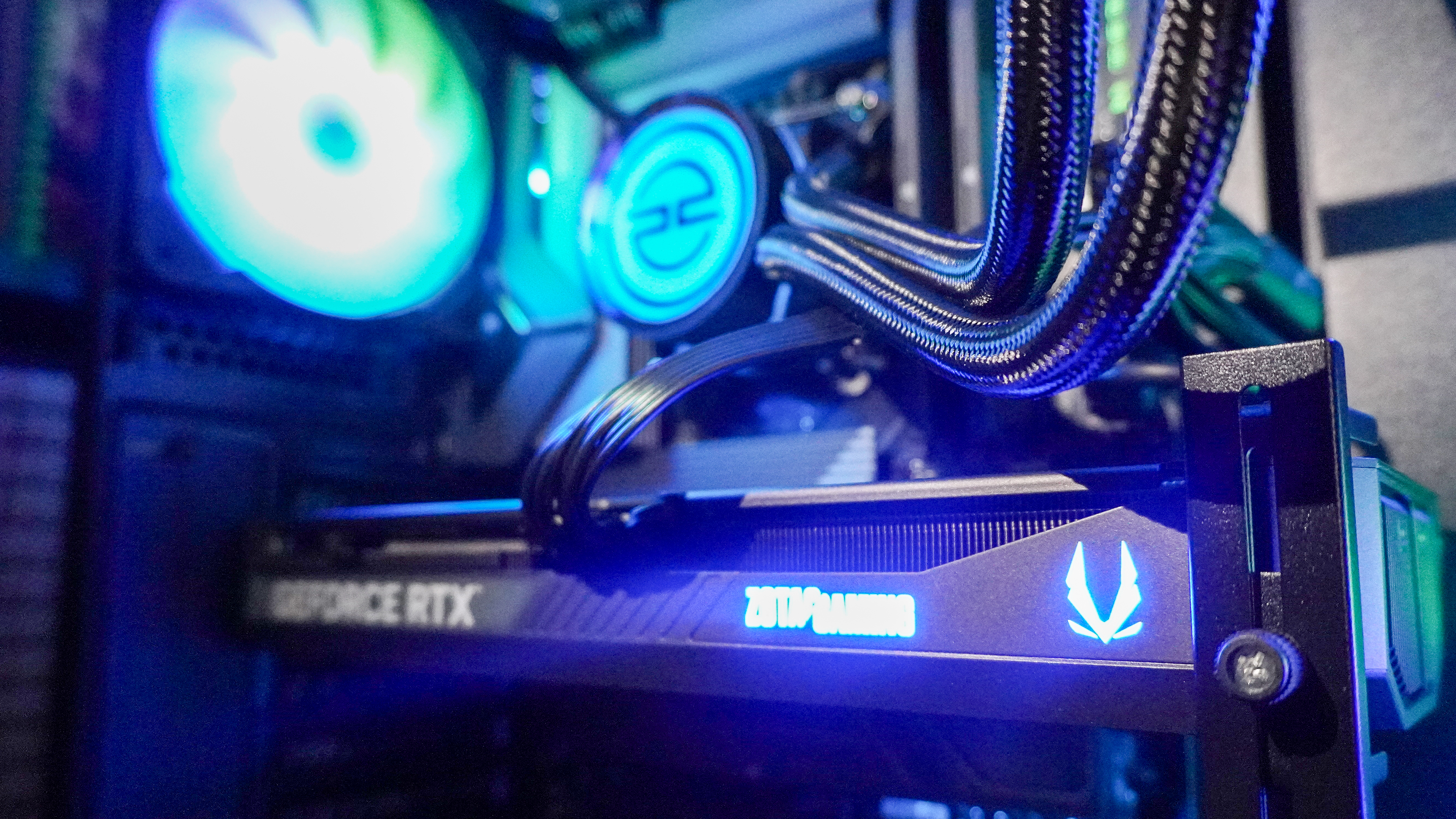Tom's Guide Verdict
23andMe is the most comprehensive DNA-testing service out there, covering not just ancestry but health traits, which means the decision to use it requires serious contemplation.
Pros
- +
Multiple test-kit purchasing options
- +
Excellent interface
- +
Good privacy and security options
- +
Helpful explanations
- +
Large user base that offers better odds of finding missing relatives
Cons
- -
Opting out of health testing doesn't stop 23andMe from conducting those tests
- -
Health findings may induce existential dread
Why you can trust Tom's Guide
23andMe offers the deepest DNA dive possible of mainstream commercial DNA testing services. And that's why you might not want to use it: Its test suite will establish data points about your health risks that can't be unlearned.
Even if you don't sign up for delivery of the full array of 23andMe results, you'll know that they've run those tests and may be sitting on confirmation of genetic predispositions for uncurable diseases. You'd best make yourself at peace with that possibility. If you can do that, consider 23andMe for its comprehensive results presented in a clean, efficient interface.
23andMe pricing and availability
You can buy 23andMe's tests via the company's site or Amazon. 23and Me also makes its tests surprisingly easy to purchase in brick-and-mortar stores; you can pick one up at CVS, Target, Walgreens, Walmart, Sam's Club or Best Buy.
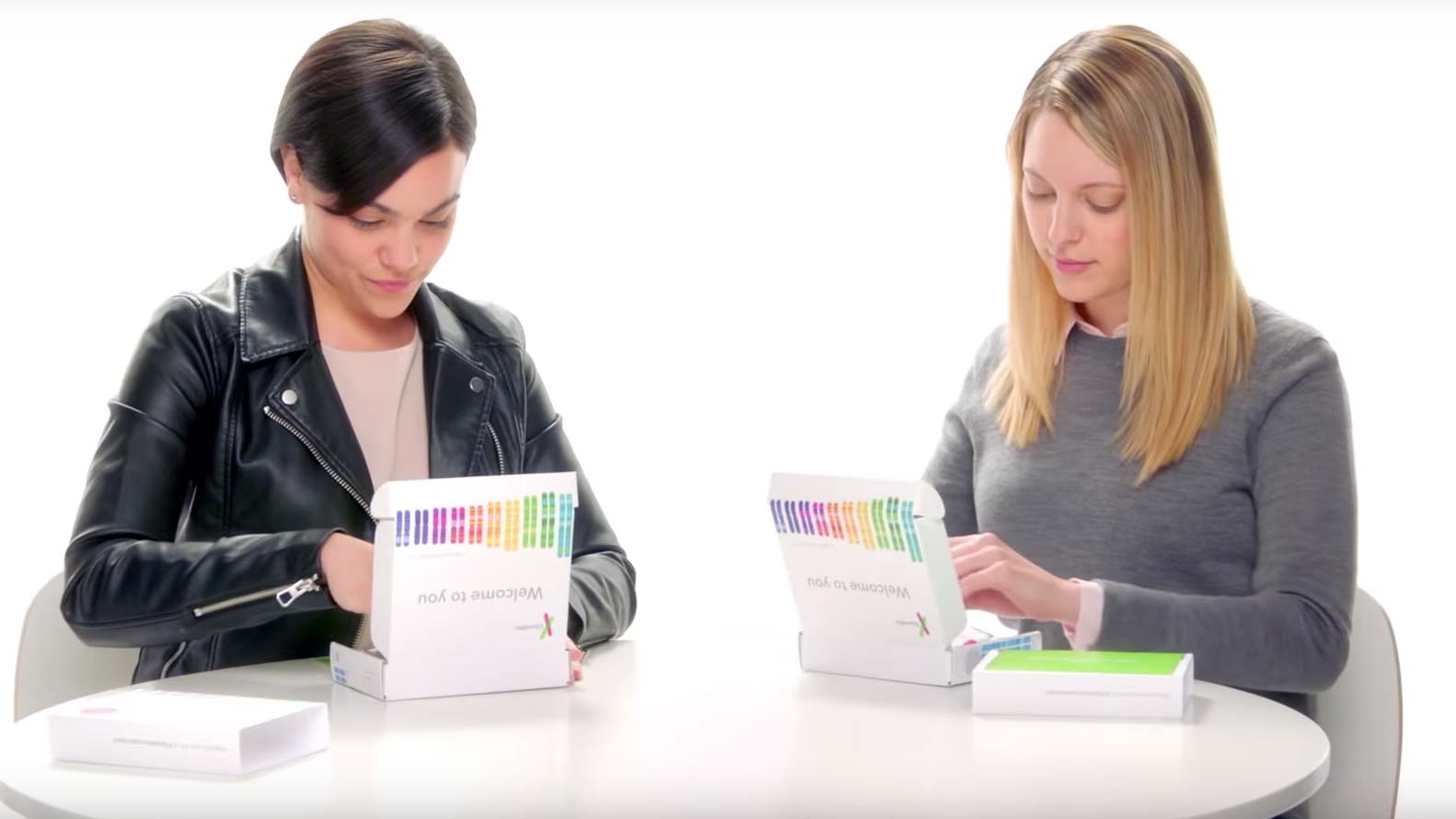
23andMe's site doesn't list this as an option, but at the Forward chain of high-tech doctors' offices in Los Angeles, New York, San Francisco and Washington, D.C, your checkup includes the option to take home a 23andMe kit. In October, the company also opened a pop-up store at a mall in Santa Clara, California, and may open other retail outlets.
The basic 23andMe ancestry kit costs $99, and the one that includes test results for personal traits and your health outlook is $199. But you can pay for those extra tests later on, because 23andMe runs its full set of tests on every sample.
If you buy a 23andMe kit at Target, Sam's Club or Best Buy, either price includes the lab fee. This opens up an interesting possibility: You could pay cash at one of those locations and then provide a fake name and an email address that doesn't include your real name when creating your account.
The company did not answer questions about whether it designed this system to preserve anonymity.
If you obtained only the ancestry kit, you can upgrade instantly online when you register it at 23andMe's site. Though that's listed as a $125 charge, the upgrade prompt offered a $25 discount to $100.
23andMe health questionnaire
When I paid for access to health reports, the system sent me through a rather foreboding list of questions about the possible health kits, including a screen asking if I wanted to see 23andMe reports about my possible genetic predisposition to late-onset Alzheimer's disease, Parkinson's disease, breast cancer (men can get it, too) and colorectal cancer.
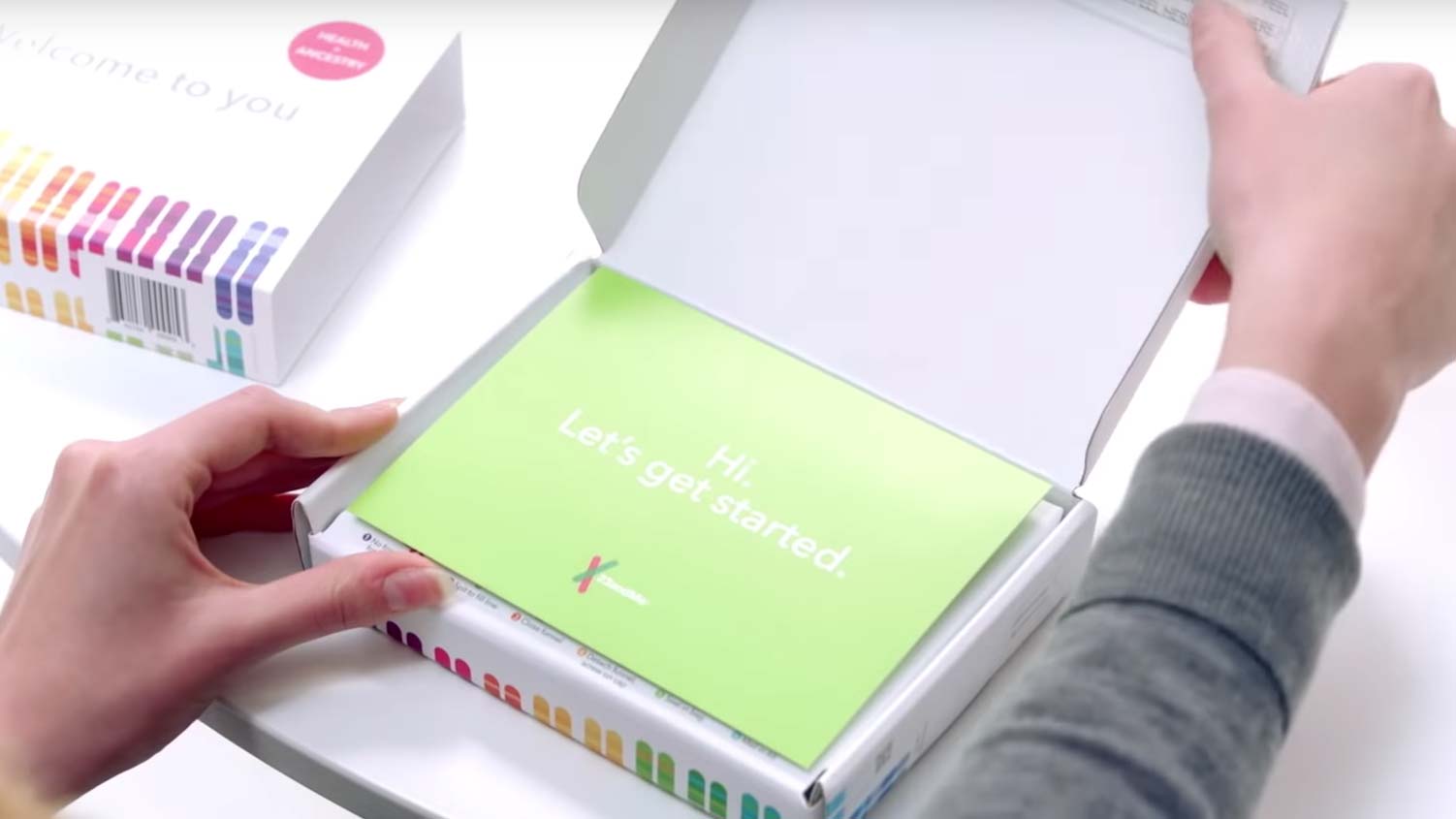
The cautions listed on that page included the following: "Genetic testing for these conditions in the general population is not currently recommended by any healthcare professional organizations." I chose the "Ask me again later" option for all four tests.
Questionnaires about my ancestry and health traits followed.
23andMe DNA test kit: What you need to do
Then, it was time to eat and drink nothing for 30 minutes before filling the kit's included plastic tube with a sufficient quantity of spit. That can be surprisingly hard to do if you haven't had a sip of anything for half an hour.
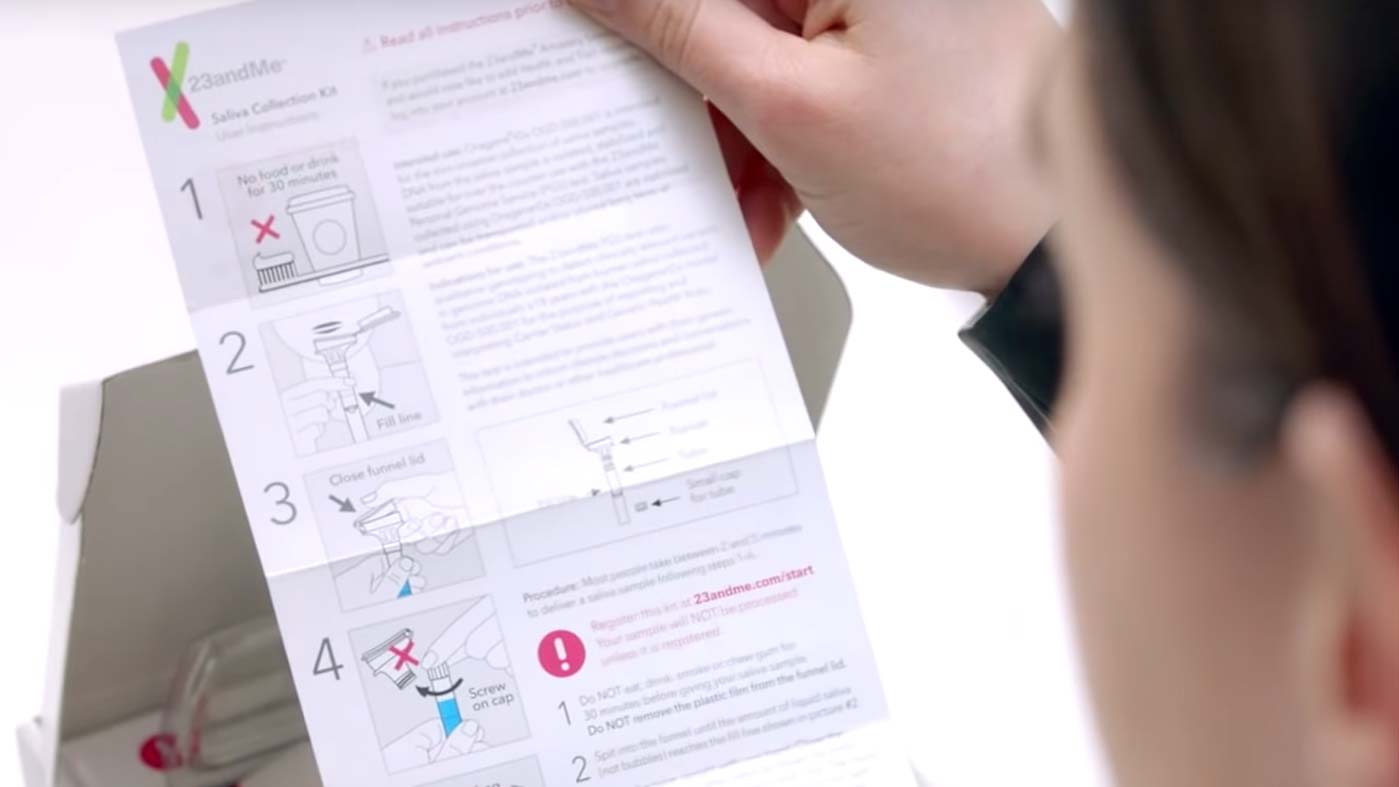
I closed the funnel on the tube to dump a stabilizing agent into my sample, yanked off its cap, shook it to mix the stabilizer, put the tube in a self-sealing bag and then put that into an included box with a pre-addressed, prepaid label that looked faded.
I dropped off the kit at a mailbox near my house on a Friday. By the next Monday, an email confirmed 23andMe's receipt of the sample and predicted that my reports would be ready in three weeks. Instead, they were ready 10 days later.
Mapping your ancestry with 23andMe
23andMe presents its estimates of your heritage in elegant graphics and exacting numeric precision, down to tenths of a percent.
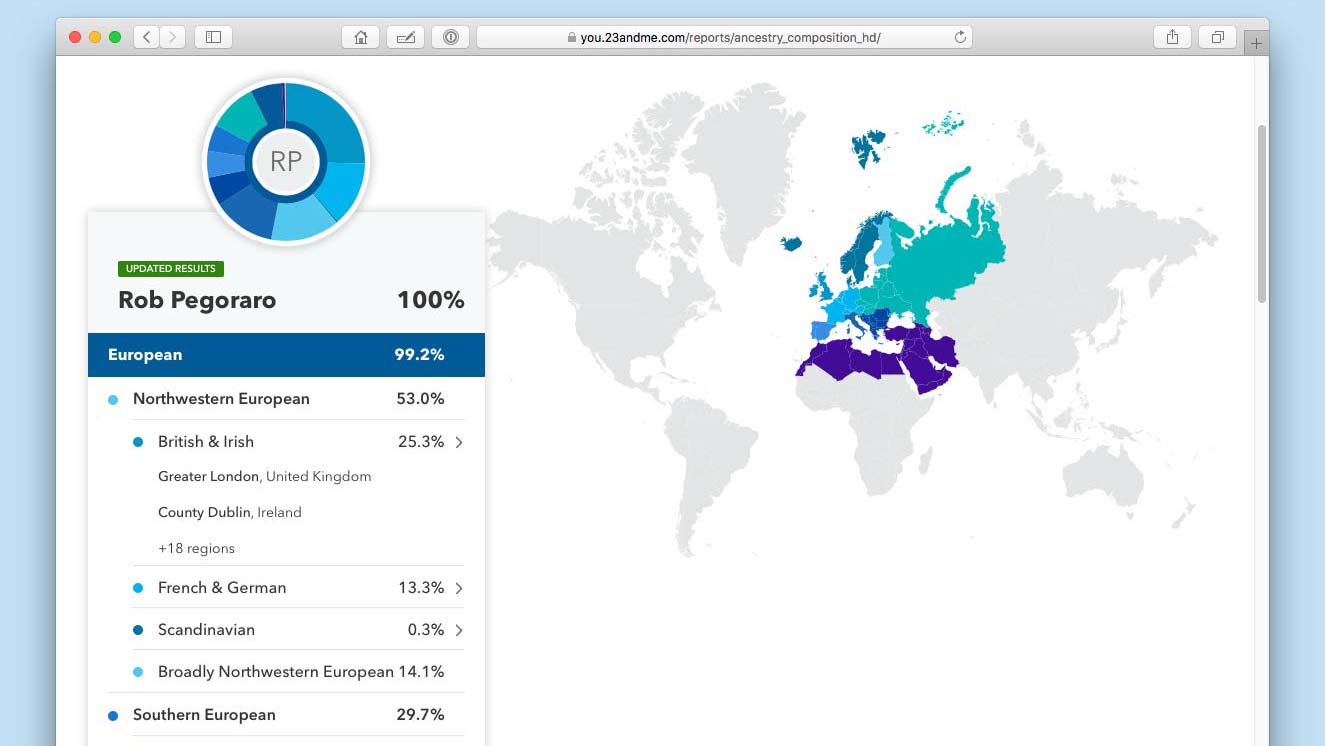
Given the fundamental fuzziness of DNA-test results — as in, how different services can return varying estimates of your ancestry — these three-significant-digit results can look like 23andMe is trying a little too hard.
This service will also calculate the particular part of a country your ancestors hailed from, if it has enough data. For example, 23andMe's estimate that I'm 25.3% British and Irish came with calculations that my ancestors most likely came from Greater London and County Dublin, but the service did not break down how much of my ancestry appears to come from each of those two nations.
23andMe didn't give much sense of its confidence, besides judging the U.K. as a "highly likely match" and Ireland as a "likely match."
23andMe said I have 'about equal chances of getting or not getting dandruff.' If you've seen me wearing a dark-colored shirt or jacket, you know the answer.
After that, 23andMe estimated my ancestry at 13.3% French and German (which is not borne out in family records), 12.9% Italian (which 23andMe narrowed down to the Veneto region, which does match what I know) and 5.9% Greek and Balkan (23andMe specified a county in Croatia to the west of the one my paternal grandparents' parents reportedly came from). After that came a few more generic groups--”Broadly Southern European,” “Eastern European,” “Broadly European,”--and 5.4% Spanish and Portuguese (my mom’s dad came from Gibraltar).
You can scroll down the Ancestry Composition screen to find the helpful option to adjust the confidence level in 23andMe's modeling from the default "speculative" setting. Going from that 50% level to 90% confidence blurred out its estimates, leaving me defined mostly as "broadly European."
These figures can change as 23andMe incorporates new data. For example, an October update increased the company's estimate of my Italian heritage from 8% and cut the French-German estimate from 16.7%.
23andMe does not publicize the total number of entries in its reference database, but the company has said it's sold about 10 million test kits, second to the 15 million that AncestryDNA has sold.
MORE: I Took a DNA Test to Shape Up, But It Didn't Work Out
Like other DNA-test services, 23andMe tries to point you to relatives with matching DNA, allowing you to ping them and vice versa. You can opt out of that.
23andMe also offers details about your maternal and paternal "haplogroups — broad populations that can be traced to a single ancestor — as well as how many variants of Neanderthal genes you have. While fascinating, those data points are less likely to help you map out your family tree.
23andMe can't surface historical documentation like AncestryDNA can. It offers a $50 discount for the professional research services offered by LegacyTree, but considering those rates start at $500, that's not much of a bargain.
Finally, 23andMe's pages on individual countries include a cloying invitation to "Explore your ancestry through Airbnb."
23andMe traits and wellness
Paying the extra $100 to upgrade from 23andMe's ancestry service gets you dozens of other reports. The ones that most people will enjoy browsing cover your personal traits, such as your aversion to cilantro or your likelihood of developing a bald spot.
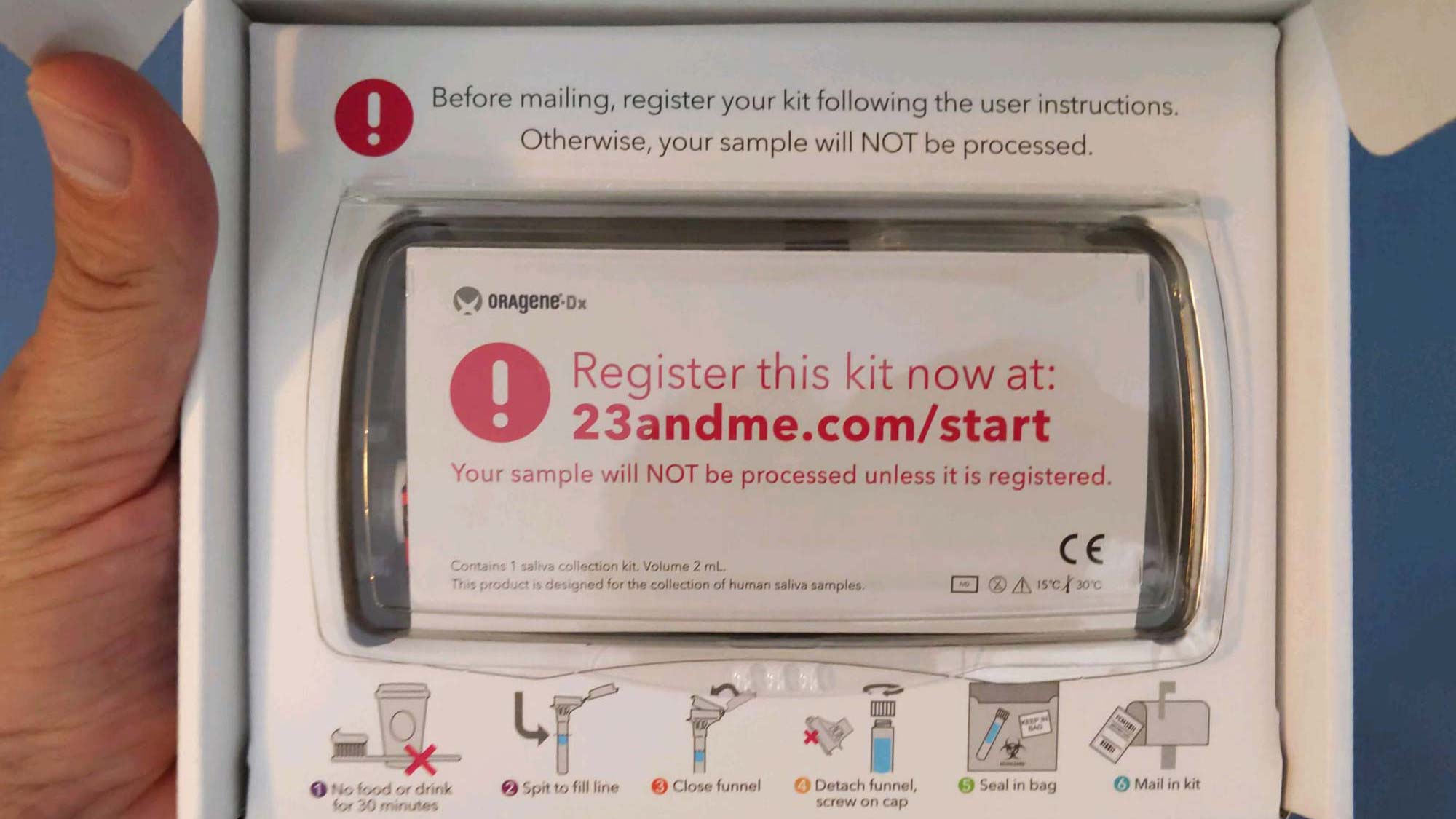
23andMe provides these results as a straightforward list, so you can skip ahead to whatever quirk has been on your mind — perhaps your dandruff or your wake-up time.
Not all of this stuff is terribly insightful. For example, 23andMe said I have "about equal chances of getting or not getting dandruff"; if you've seen me wearing a dark-colored shirt or jacket, you know the real-world answer. Some sort of highlighting of the unusual results would make this list easier to scan.
Each of these trait reports comes with a more detailed breakdown that can be worth reading to see how far you should take that conclusion. For example, 23andMe's assessment that I'm less likely to have a fear of public speaking comes with an explanation that it's based on a survey of 870,000-plus 23andMe users that led the company to identify 802 genetic markers associated with that fear.
This service gets a little more serious in its assessments of eight wellness traits. The genetic weight readout may help explain why you do or don't struggle to keep the pounds off, while the Sleep Movement report can tip you off that by moving your limbs often while asleep, you're messing with your bedmate's sleep cycles.
I found one false note in my own traits listing: the assessment that I'm likely lactose intolerant. When I clicked through the form on that page to report that I don't have digestive hang-ups with dairy products, the page noted that genetic markers other than the LCT gene that was tested can govern lactose digestion.
23andMe health forecasts: Can you trust them?
Finally, there's the part of 23andMe that just might foretell what will send you to an early grave. The company's health forecasts made it controversial early on; in 2013, the U.S. Food and Drug Administration forced 23andMe to stop providing these assessments. The FDA relented four years later, having determined that by then, 23andMe had adequately tested its methodology and taken steps to present its results with sufficient clarity.
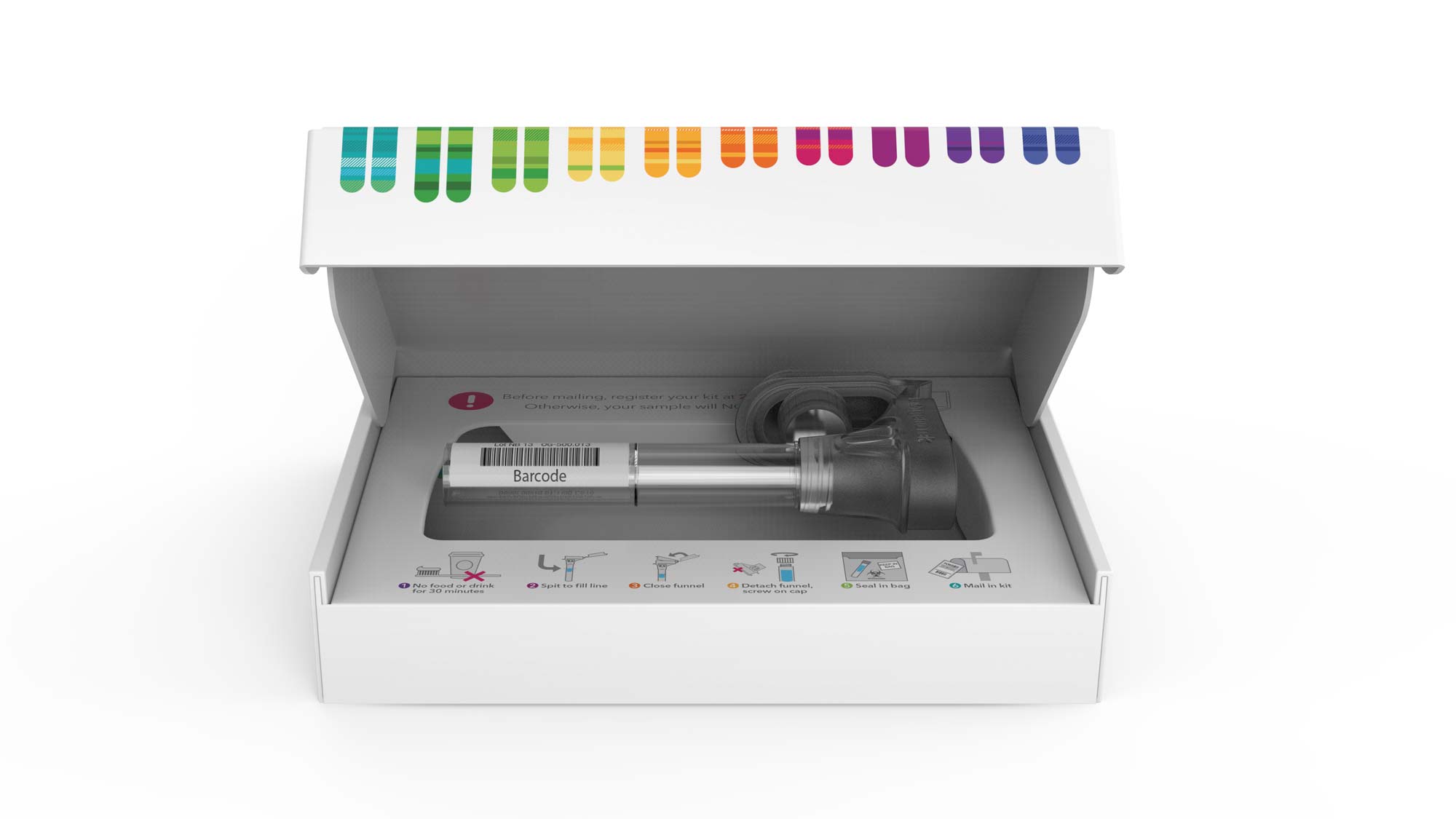
The result: This is the one consumer product I've tried lately that has the potential to tell you how you're going to die.
The tests here cover 44 conditions tied to particular genetic variations — a dismaying catalog of how our bodies can betray us — and 13 predispositions to such conditions as celiac disease and Parkinson's disease. Each one comes with a detailed breakdown of the science behind that test, including how it might prove to be inaccurate.
Some will also require you to click through a cursory slideshow explaining the basic facts of the condition being assessed, which isn't much preparation for information that could radically change your outlook on life.
What you want to see next to each line is "Variant not detected" or "Variants not detected." Otherwise, it's up to you to decide what sort of medical advice to get next.
One expert's advice: Don't ask.
"We don't recommend that testing," said Joann Bodurtha, a professor of genetic medicine at the Johns Hopkins Department of Genetic Medicine. "It really is a disposition rather than a diagnosis."
This is the one consumer product I've tried lately that has the potential to tell you how you're going to die.
She noted that, while she respects 23andMe's science, its tests look for specific genes that indicate health risks. By contrast, her lab's approach is to conduct a more comprehensive survey to identify relevant genetic variants after diagnosing a patient with a particular condition.
For the sake of science, I took a series of deep breaths before clicking through 23andMe's health assessments — which reported no genetic variants found for any of these conditions except Type 2 diabetes. There, I have only a "typical" likelihood of developing that disease over the next 30 years or so.
As a result, 23andMe's "Health Plan" for me is on the boring side: eat "nutrient-dense foods," get in half an hour of activity five times a week and don't smoke.
MORE: DNA Test Kits: Everything You Need to Know
Bodurtha advised against taking too much heart from a favorable forecast. "The danger is somebody getting a test that says you don't have this, when that's not necessarily what a practitioner in this area would do," she said.
But there was only one thing I could say to my mom after relating this positive bill of genetic health predispositions to her: "Thanks!"
23andMe security and privacy
23andMe surfaces an enormous amount of sensitive data but provides appropriate security options. The site signs you out automatically and, as of late summer 2019, offers two-step verification — not via your phone number, but through Google Authenticator and other code-generation apps.
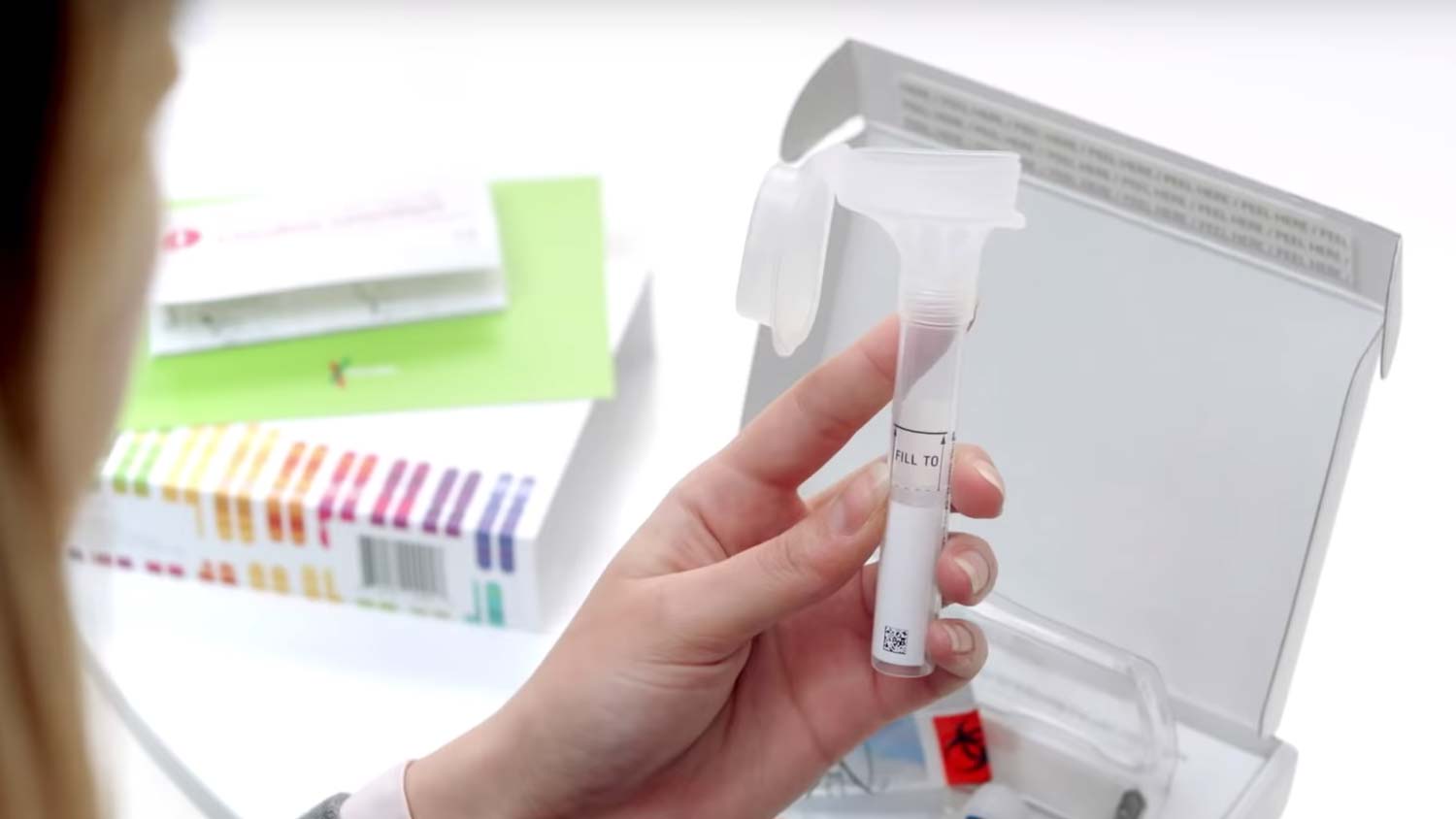
You can also sign in with your Google account and thereby benefit from Google's own security, which may be worth doing if you were going to register with a Gmail address and have properly defended that account with Google's two-step verification.
The privacy page here is actually worth reading for its plain-language statements about what the company will and will not do. This sentence is particularly important: "23andMe will not provide any person's data (genetic or non-genetic) to an insurance company or employer."
MORE: Your DNA for Sale: 23andMe, Drug Giant Make $300 Million Deal
The company is also upfront about how it deals with government requests for information, which it inventories in a transparency report updated every six months. Since 2015, when the company began making these disclosures, it's fielded six requests from governments for customer data and produced data for none of them.
Should you change your mind on this service, you can also opt to download all of your bulk data and then have 23andMe wipe its own records and delete your sample. This company asks for a great deal of trust from its customers, but it's also given them tools to cancel it.
23andMe vs. AncestryDNA: How do they compare?
If you only want to trace your heritage, 23andMe packs a little too much baggage to keep up with AncestryDNA. And even if you only buy 23andMe's ancestry service at the same $99 list price as AncestryDNA's — and strive not to think about how it runs the health-predisposition tests anyway — 23andMe's lack of a documentation-research service akin to AncestryDNA's still leaves it behind.
But 23andMe's presentation of personal and wellness traits is both more comprehensive and easier to scan than AncestryDNA's. And AncestryDNA only began offering health data in mid-October 2019, so if acquiring that knowledge is a primary motivation for using a DNA-test service, then 23andMe is the right choice.
Bottom line
Getting a 23andMe kit and letting the company analyze your DNA requires a serious commitment of trust — both in the company's ability to protect the health insights its testing will generate and in your own ability to face possibly life-changing news with grace. But if you're looking for the deepest possible insight into your past and future, spend the $199 for 23andMe.
23andMe's history of steady improvements is another pro. Just in the two months I spent researching for this review, the company added two-step verification (which addressed one of its bigger weaknesses) and performed a substantial recalculation of its ancestry estimates. Moreover, the company's privacy measures and data-deletion options allow you an escape hatch of sorts.
Rob Pegoraro tries to make sense of computers, consumer electronics, telecom services, the Internet, software and other things that beep or blink for a variety of online and print outlets.
